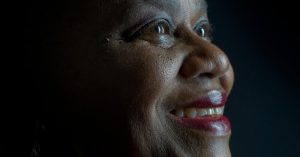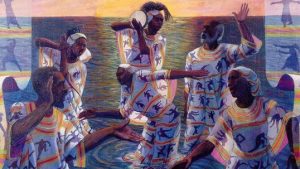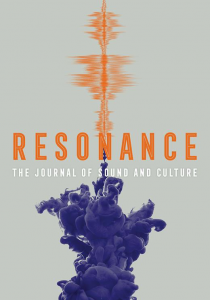On July 16th, MacArthur “Genius” Fellow, Dr. Bernice Johnson Reagon, joined the ancestors.
Dr. Reagon was a powerful singer/songwriter, a leading Smithsonian Institution curator and a trailblazing social activist/historian/author.
She founded and led – for 30 years – the Grammy nominated acapella singing group, Sweet Honey in the Rock. The group is now celebrating its 50th anniversary. Dr. Reagon’s richly distinctive alto voice was a powerful testament to the struggles and triumphs of the American civil rights movement and contemporary freedom movements worldwide.
Dr. Reagon also was an inspirational teacher and mentor. Her unofficial mentorship of me began when I became a writer/producer on NPR’s and the Smithsonian Institution’s Peabody Award-winning 1994 documentary series, Wade in the Water: African American Sacred Music Traditions. This series explored nearly 200 years of Black sacred music history and inventions – a groundbreaking research and production undertaking.
Songs and Singing as Church was the first show in the Wade series, and with Dr. Reagon’s steadfast guidance, I was honored to produce it along with 12 other shows in this 26-part series.
During a 5-year period, the entire Wade production team was buoyed by Dr. Reagon’s conceptual leadership, impressive musical and historical knowledge, and her keen interest in the lives and influences of the men and women who created Black sacred music – from spirituals, lined hymns and jazz to traditional and contemporary gospel.
Through Dr. Reagon I learned to employ oral history interviewing techniques that encouraged people to share their experiences, and that validated the importance of their life stories. We Wade producers couldn’t wait to interview, record commissioned musical performances, or find archival tape of the artists, ministers, congregants, scholars, and listeners who might share their insights on Black sacred music’s multilayered and wide-reaching impact.
For the 26 hour-long programs in the Wade series, we set our sights on featuring artists like BeBe and CeCe Winans, Jessye Norman, the Fisk Jubilee Singers, John Coltrane, Mahalia Jackson, Edwin and Walter Hawkins, Aretha Franklin, Billie Preston, the Staple Singers, Sister Rosetta Tharpe and Take 6 – just to name a few.
All the while, Dr. Reagon was there to advise, to listen, to critique, and to work – sometimes in weekly studio recording sessions that lasted from 7:00pm to 3:00am. She was a serious trooper/general, and we followed her lead.
As a true musical and scholarly force of nature, I thank Dr. Reagon for positively influencing – and transforming – my professional life.
To read more about Dr. Reagon, please click on the link below.
Bernice Johnson Reagon – Obituary https://wapo.st/3zN65KX


